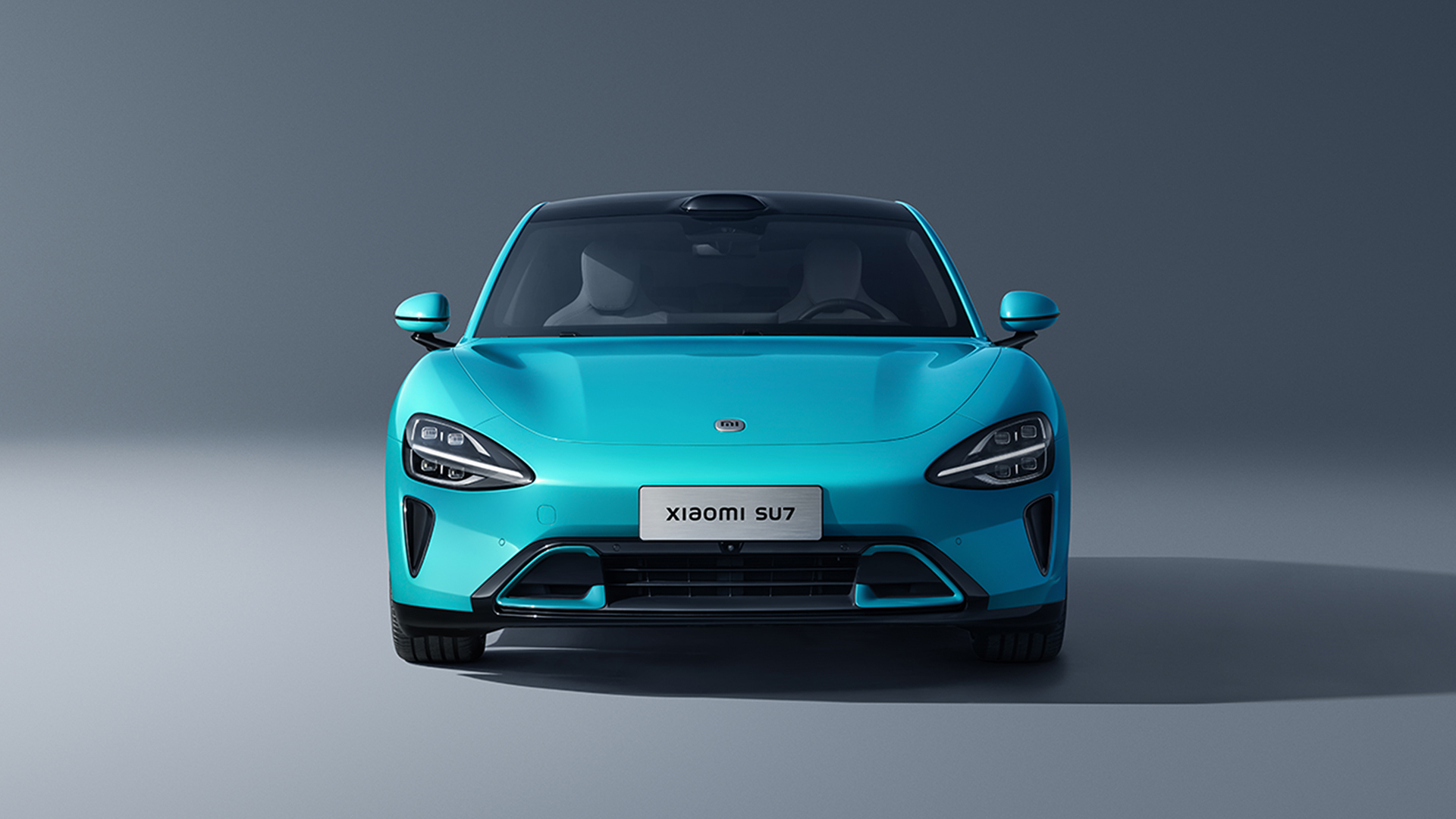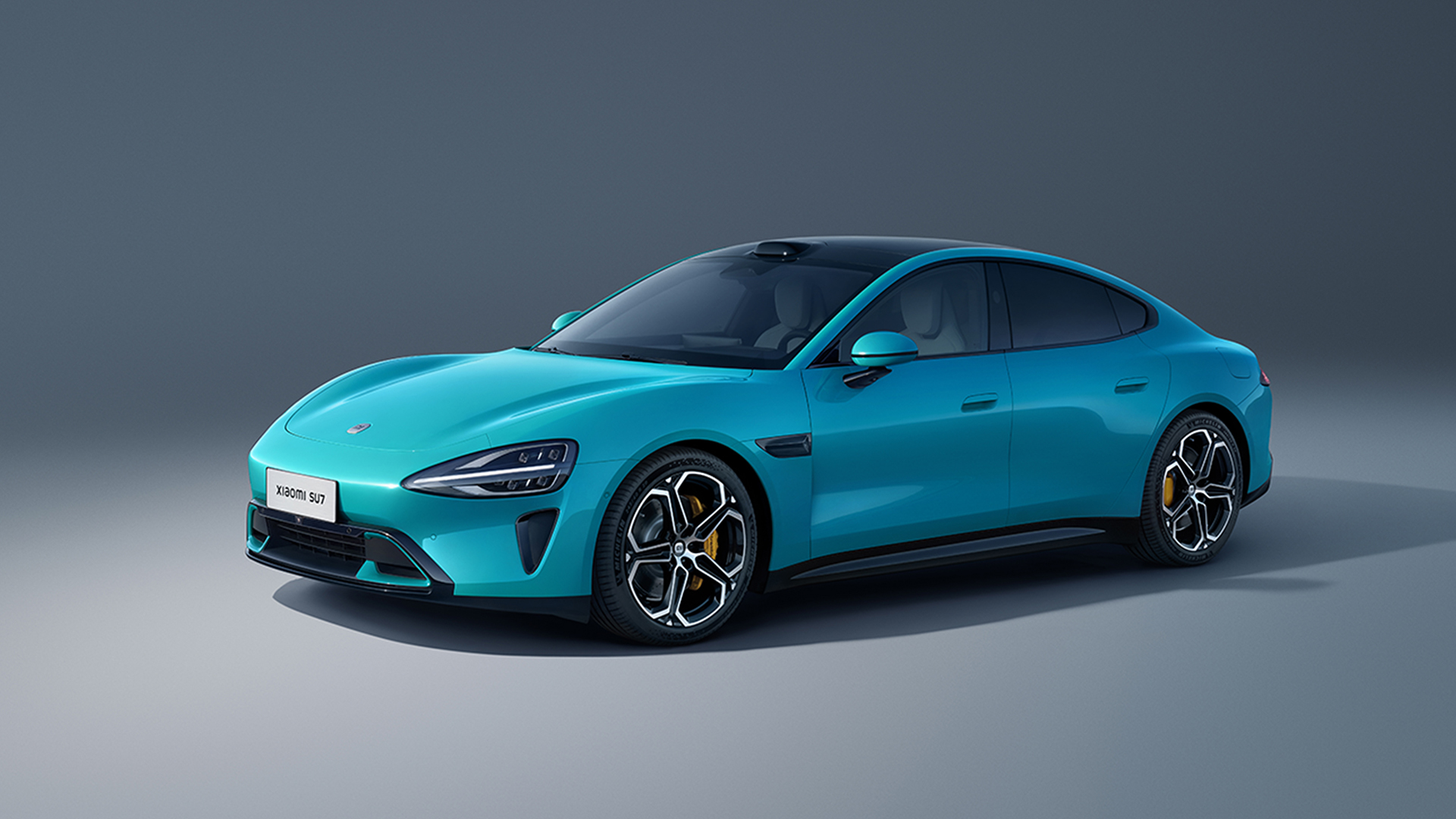
Xiaomi is reportedly looking to bolster its EV offerings, as it builds on the success of its debut SU7 Sedan with a compact crossover that considers the Tesla Model Y as a close rivals.
The SU7 was revealed last year and then went on to secure 50,000 orders within the first 27 minutes of going on sale in China earlier this year. It has proven to be a smash hit in its domestic market and Xiaomi Automotive says it built 10,000 units in the first 32 days of production and is on track to deliver a total of 100,000 cars before the end of the year.
Part of the success story has been in the introduction of an awesome 16.1-inch 3K central console, a 56-inch head-up display and the powerful, SnapDragon-based infotainment software that boasts increased levels of AI that learns driver and passenger behavior. This is all before you consider the seamless integration of Xiaomi's smartphones and other devices.
A recent report from Bloomberg suggests that Xiaomi is looking to increase SU7 Sedan output to meet consumer demand, while simultaneously developing a new model that will take the shape of the popular compact SUV – a segment that is rapidly gaining traction in China.
According to Bloomberg, the company benchmarked its upcoming SUV against Tesla’s Model Y during development, an insight provided by the news outlet’s anonymous sources.
Although specification, battery sizes and any innovative new onboard tech details have yet to be revealed, it would be fair to assume the same or updated infotainment system will feature. Plus, the announcement and eventual delivery of an SUV would bolster the expansion of Xiaomi’s $10 billion overall EV investment, which Bloomberg claims has been personally spearheaded by billionaire co-founder Lei Jun.
Analysis: Xiaomi to become a major EV player

When it was first announced that smartphone giant Xiaomi was entering the EV market, much of the Western world assumed it would be a bit of a novelty – the tech company offering an automotive extension of its digital devices.
But the announcement of an upcoming SUV proves that Xiaomi is serious and, despite the fact that the model is not predicted to arrive until 2025, it marks the expansion of its current production facility, which can only manage around 10,000 deliveries a month, according to Bloomberg.
The new and improved assembly line is set to increase production capabilities to 300,000 units per year, meaning the smartphone maker will be able to deliver the sort of numbers that would make it a serious competitor in the Chinese EV market.
That said, both BYD and Tesla posted serious sales figures in the final quarter of last year, with the former claiming 526,000 battery-only vehicle sales and the latter not fair behind with 484,500 – 1.8 million for the year as a whole.
Despite Xiaomi’s estimated production figures falling some way behind the market leaders, Bloomberg says that its EV business could break even in 2026, two years ahead of schedule. A mightily impressive feat considering how hotly contested the electric vehicle market is in China.







